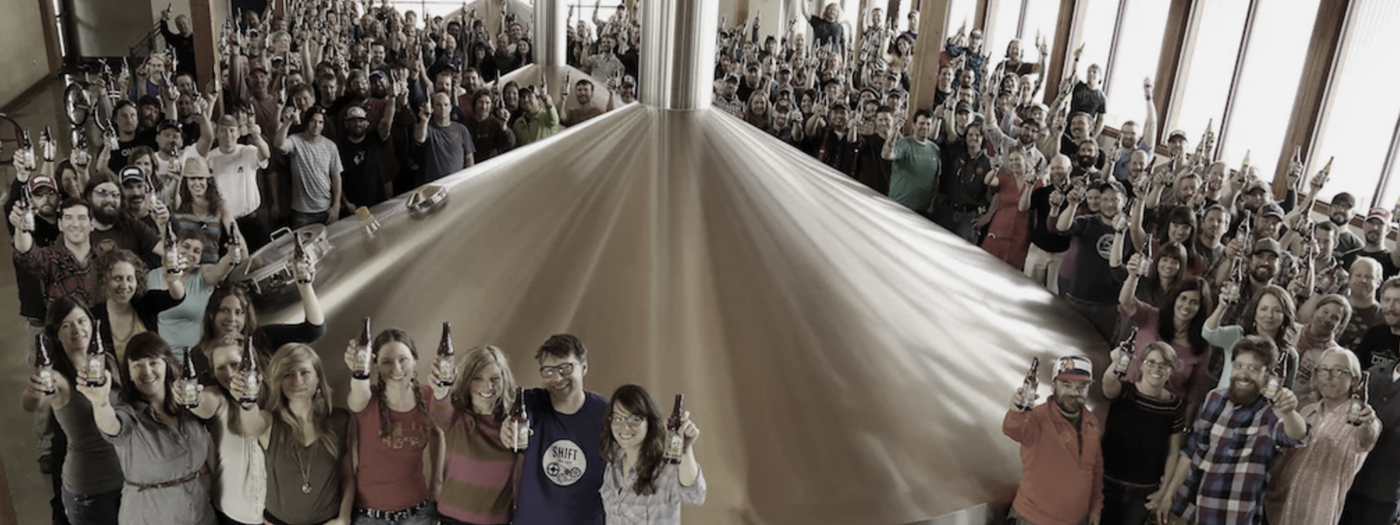With the news arriving in late December that New Belgium Brewery employees voted to confirm the sale of their company to Kirin-owned Lion Little World Beverages, it is now official: a legendary ESOP story that began in the year 2000 is over. New Belgium Brewery is no longer an employee-owned company.
As news of the sale recedes, it is interesting to contemplate how New Belgium’s 700 employees might feel about the vote. A last-minute controversy surrounding the international business practices of Kirin in Myanmar undoubtedly proved embarrassing. It reportedly had some effect on the vote; however, final results have been kept secret. Even those looking forward to more than the estimated average payout of $100,000 are likely to have mixed feelings. Aside from any concerns they may have about Kirin, they all now know the difference between walking out the door one day as an employee-owner and arriving the next as an employee.
Shared ownership was not just a superficial slogan at New Belgium. Anyone who viewed the well-known employee ownership documentary, We the Owners, could see the culture for themselves. There was pride in ownership, a kind of pride that went beyond money. Management theorists can debate whether or not that kind of pride and commitment can be reproduced with derivative ideas, such as profit sharing and efforts to continue a culture of participation. If I were Kirin, I would not bet the ranch on such a hope. It is at least a rebuttable claim that legal ownership is a necessary but not sufficient condition for creating an ownership culture. Building such a culture does require independent effort beyond the lawyer’s pen. Once achieved however, real ownership serves as a unique binding agent. Ownership offers a reason for resilience, for holding the efforts of people together over time when the going gets rough.
Of course, pioneers cannot always choose their paths. Like many craft brewers, New Belgium founders Kim and Jeff Jordan were industry pioneers and one of the first in their industry to choose an ESOP as their exit mechanism. That choice was both sincere and rational. They believed in the inclusivity and justice of the idea. And they received competitive financial value for the sale of their stock. Nonetheless, a quote from Kim Jordan on the occasion of the company’s transition to 100 percent ESOP ownership back in 2013 has a certain poignancy today.
“There are few times in life where you get to make choices that will have multi-generational impact — this is one of those times.”
The sale of New Belgium to Kirin in 2019 means that the impact Kim Jordan described has been limited to one generation of New Belgium workers. That is unfortunate. The decision to sell clearly reflected business challenges in a highly competitive and apparently overvalued craft brewing sector. But this decision also speaks to the limits of the present-day employee ownership financing infrastructure. ESOP sales are not yet functionally competitive with the more familiar route of private equity or strategic industry sales. ESOP sales may be financially competitive but they are not efficient. ESOP transactions are typically installment sales that take time, often over a decade, to execute. And by taking time, they also delay a necessary cultural “turning of the page” from founder-sellers to employees and a new generation of leadership.
At New Belgium, the first-stage sale of 41 percent of company stock took place in 2000. Thirteen years later, just before completing an expansion to a new production facility in Asheville, North Carolina, the transition to 100 percent employee ownership took place. One can only speculate how events at New Belgium might have played out differently if a 100 percent sale to employees had been executed back in 2000. By 2019 New Belgium faced both increased competitive pressure and a considerable repurchase liability for that first generation of employee owners, who will be retiring over the next decade. Those challenges are very real. They are also entirely manageable.
There is movement afoot in the ESOP marketplace to create scaled capital institutions that can drive the conversion of privately held businesses into employee-owned companies and compete with conventional financing resources.
There is movement afoot in the ESOP marketplace to create scaled capital institutions that can drive the conversion of privately held businesses into employee-owned companies and compete with conventional financing sources. Competing with strategic buyers the likes of Kirin will always be challenging since those buyers will often pay exorbitant prices to dominate their markets. Competing with private equity financial buyers should be doable. The combination of the tax efficiency of the 100 percent S Corporation ESOP structure and the demonstrated productivity advantages of employee ownership will enable ESOP funds to win a fair share of bidding contests.
What this new generation of financing institutions supporting employee ownership needs to provide, however, is not merely capital. Like the most successful private equity firms—Blackstone, Bain, KKR, and others whose names are familiar in the business pages—these new entities will need to be able to deploy industry expertise to help employee-owned firms navigate through technology changes. They should also be institutions that can incubate a deep bench of successors, next generation employee ownership-oriented management teams that will be drawn to the vocation of managing in more democratic settings, settings where employees will be their partners and not simply rented humans.
Until the employee ownership field builds this kind of infrastructure, we will continue to lose our most promising and dynamic companies. Family offices, foundation endowments, public and private pension funds, and even sovereign wealth funds from abroad are all possible sources of funding for standing up these next-stage institutions. Evidence from the academic world that documents the performance advantages of employee ownership suggests that this would be a worthy bet, and not just for employees and communities. It would also be a financially prudent choice for investors.
This contribution to “Last Call,” was originally published at January 6, 2020, at Employee Owned America.
Christopher Mackin (cm@ownershipassociates.com) is a lecturer at the Rutgers School of Management and Labor Relations, and founder of Ownership Associates, Inc.




















